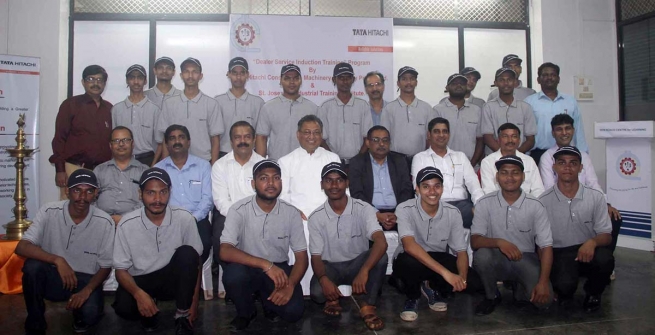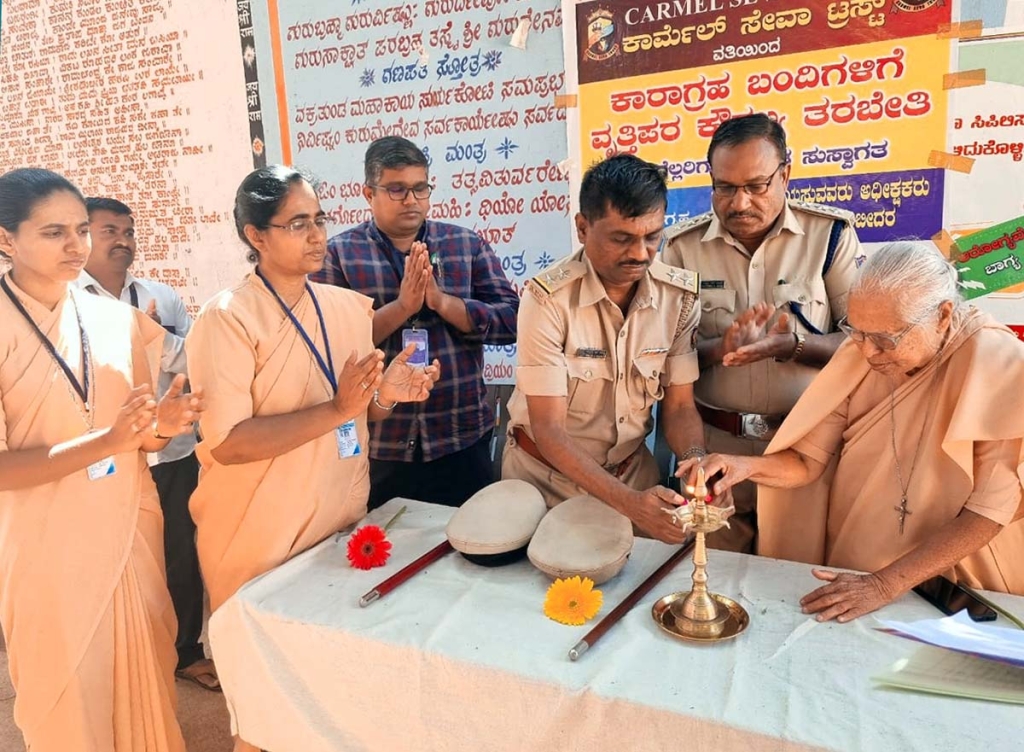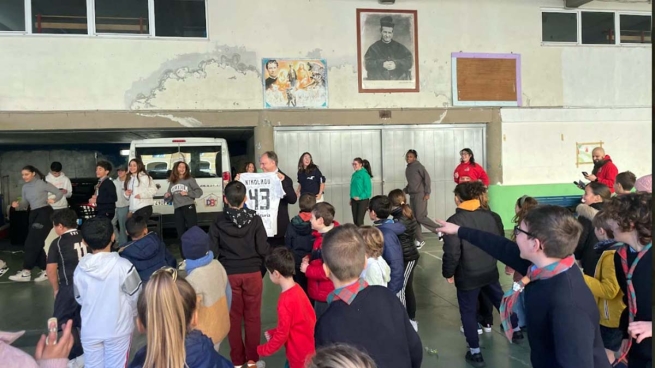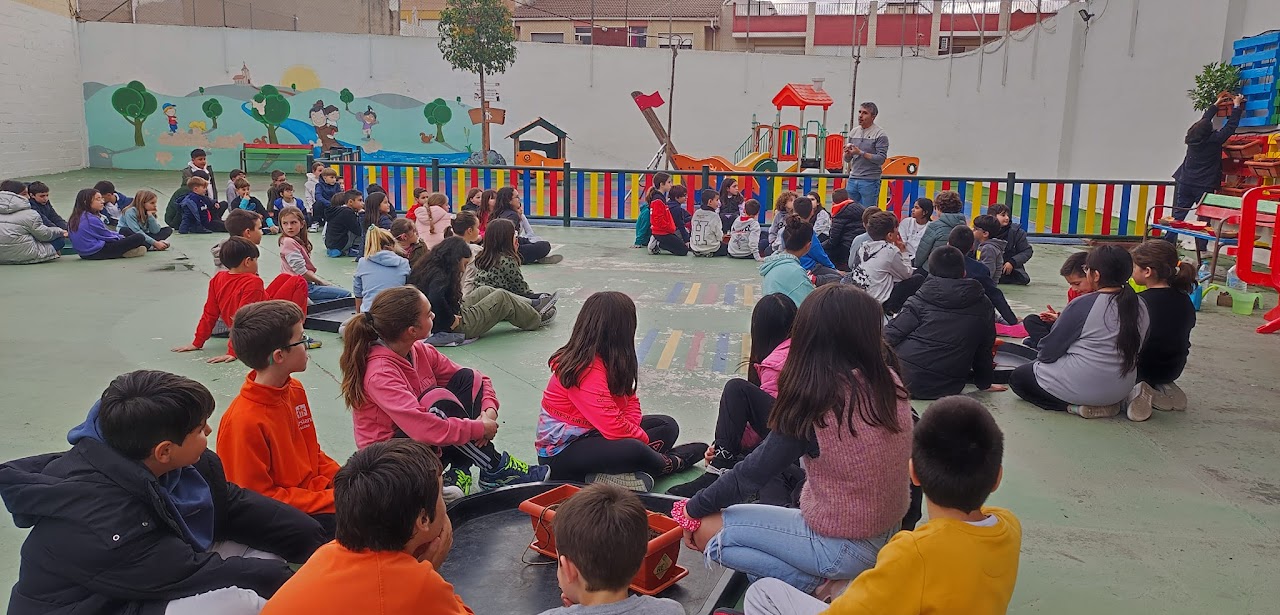INDIA: St. Joseph’s Industrial Training Institute Forms Partnership with Tata Hitachi to Provide a Dealer Service Induction Training Program

(MissionNewswire) The Salesian-run St. Joseph’s Industrial Training Institute signed a memorandum of understanding with Tata Hitachi to become the first institution in India to offer a dealer service induction training program. Tata Hitachi, one of the leading mining, construction and agricultural machinery manufacturers in India, is the 14th industry partner to have joined forces with St. Joseph’s Industrial Training Institute. The program consists of 65 days of training for groups of 20 auto-tech trainees.
The Institute’s instructors will be trained by Tata Hitachi. Phase one involves basic training at the Salesian Institute. The curriculum has been designed for cut sections of all machinery to be installed on the premises. Phase two is 20 days of on-the-job training at the Tata Hitachi training facility in Dharwad, Karnataka.
At an inaugural ceremony of the program, Ram Iyer, the head of customer services at Tata Hitachi, and his team briefed Salesian missionaries and new students about the program and reassured them that all the help and support that the Institute would need would be given. He later replied to questions posed by students and urged them to keep upgrading themselves and to work hard. He also shared some of his mantras, which have made him successful.
The aim of the program is to create a pool of talented and skilled professionals for the industry while ensuring that youth from disadvantaged backgrounds have opportunities for gaining stable employment. New trainees were also made aware of possible career progression as well as the various training initiatives and opportunities available with Tata Hitachi. Joint certification and placements are assured for successful candidates.
For poor youth who lack access to education and skills training, risk of exploitation in the labor market increases as does their chance of continuing to live in conditions of poverty. The current automobile repair industry in India is characterized by an inadequately skilled workforce and a lack of professional training opportunities for repair and diagnostics. The training program will enhance the technical abilities and employability of its trainees.
“At present, there is a huge skills gap in the automotive repair industry in India,” says Father Mark Hyde, executive director of Salesian Missions, the U.S. development arm of the Salesians of Don Bosco. “This partnership is meant to address the rise in youth unemployment while providing a skilled employable workforce. Students will now have access to training and education that will lead directly to long-term stable employment.”
With more than 1.2 billion people, India has the world’s fourth largest economy and according to UNICEF, is home to one-third of the world’s poor. Close to 217 million of India’s poor are children. Although more than 53 million people escaped poverty between 2005 and 2010, most remain vulnerable to falling back below the poverty line.
India’s youth face a lack of educational opportunities due to issues of caste, class and gender. Almost 44 percent of the workforce is illiterate and less than 10 percent of the working-age population has completed a secondary education. In addition, many secondary school graduates do not have the knowledge and skills to compete in today’s changing job market.
###
Sources:
ANS – India – Tata Hitachi Partners with St. Joseph’s ITI Kurla
UNICEF – India




